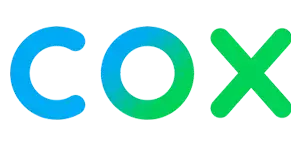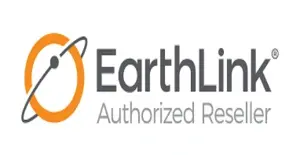Top Internet Providers in Phoenix, Arizona
Spectrum
Centurylink
Cox
Earthlink
Qwest
Cable One
HughesNet
T Mobile
The Ultimate Guide to Cheap and Reliable Internet Providers in Phoenix, AZ
Navigating the digital landscape in a sprawling metropolis like Phoenix can be a challenge. With a diverse array of neighborhoods, from dense urban cores to expansive suburban and rural fringes, the availability and quality of internet service can vary dramatically. Phoenix is fortunate to be a competitive market, served by several major and regional internet providers that use a mix of cutting-edge fiber optic, widely-available cable, legacy DSL, and innovative fixed wireless 5G to deliver high-speed internet. This in-depth guide will not only introduce the major internet service companies in Phoenix but will also provide critical analysis, comparative data, and strategic advice for selecting the best internet service for your home, budget, and needs.
Understanding Internet Technology: What You're Really Buying
Before diving into providers, it's essential to understand the different types of internet technology available, as this fundamentally impacts your experience in terms of speed, reliability, and cost.
- Fiber Optic Internet: The gold standard. Data is transmitted via pulses of light through thin glass fibers. This technology offers three supreme advantages: blisteringly fast speeds (often up to 1-8 Gbps), symmetrical upload and download speeds (crucial for video conferencing, live streaming, and backing up large files), and exceptional reliability as it's immune to many electrical interferences that plague other types. The primary drawback is limited availability.
- Cable Internet: The workhorse. Delivered through the same coaxial lines that provide cable television. It offers very fast download speeds, often competing with lower-tier fiber plans. However, upload speeds are typically much slower, and because bandwidth is shared with neighbors in a localized "node," speeds can slow during peak usage times (7-11 pm).
- DSL (Digital Subscriber Line): An older technology that runs over traditional copper telephone lines. Its speed and quality degrade significantly with distance from the provider's central hub. While it's widely available, it's generally slower than cable or fiber and is being phased out in many areas.
- Fixed Wireless (5G & 4G LTE): The disruptive newcomer. This service beams an internet signal from a cell tower to a receiver in your home. It requires no cables or phone lines, making installation easy. 5G Home Internet can offer speeds rivaling cable, with low latency good for gaming. Performance can be affected by weather, distance to the tower, and physical obstructions like walls or trees.
- Satellite Internet: (e.g., Starlink, HughesNet, Viasat) A crucial option for rural areas outside Phoenix with no other options. While modern low-earth orbit services like Starlink offer dramatic improvements over old satellite tech, they still suffer from higher latency (ping) due to the vast distance signals must travel, which can impact real-time online gaming and video calls.
Best Internet Providers in Phoenix, AZ: A Detailed Breakdown
Your first step should always be to check for fiber-optic availability at your address. If it's available, it's almost always the best performing option. In Phoenix, the fiber landscape is primarily led by two key players: CenturyLink Fiber and Quantum Fiber (which is actually a subsidiary of Lumen Technologies, the same parent company as CenturyLink).
CenturyLink Fiber offers some of the fastest residential speeds in the nation, with plans reaching up to 8 Gbps in select locations. Their more common fiber plans start at a highly competitive $50/month for 200 Mbps and go up to $75/month for 940 Mbps. A key selling point for CenturyLink is "price for life" on many of its fiber plans, meaning your introductory rate won't increase after 12 or 24 months, a significant benefit in an industry known for promotional pricing.
Quantum Fiber is Lumen's newer, customer-centric fiber brand. Covering about 10.8% of the city, it offers simple, straightforward pricing with no contracts. Plans start at $50/month for 500 Mbps and go up to $95/month for a staggering 2,000 Mbps (2 Gig) with symmetrical upload speeds. This plan is a standout value for power users, creators, and large households. Like its sibling, Quantum Fiber often includes unlimited data and no equipment fees.
For the majority of Phoenix homes where fiber isn't yet available, cable internet from Cox Communications is the dominant player. Cox serves a massive 83.4% of Phoenix and offers robust speeds up to 2 Gbps. Plans start around $50/month for 100 Mbps, which is sufficient for most small households, and scale up to $110/month for their 2 Gig plan. Cox is a solid and reliable choice for streaming, gaming, and working from home. However, it's crucial to be aware of Cox's data caps. Most plans include a 1.25 TB data cap, with overage charges of $10 for each additional 50 GB block, up to a $100 maximum each month. You can avoid this by subscribing to their unlimited data add-on for an extra $30/month.
The fixed wireless arena is fiercely competitive and represents the best value for many. Verizon 5G Home Internet covers 28.4% of the city and is a fantastic option where its network is strong. Plans start at $50/month, but this drops to an incredibly affordable $35/month for customers with eligible Verizon mobile plans (often the more expensive unlimited tiers). Speeds are typically between 85-300 Mbps with no data caps. Similarly, T-Mobile Home Internet (TMHI) offers service for $50/month ($30 for eligible Magenta Max mobile customers). Speeds can vary widely (72-245 Mbps) based on proximity to a tower, but it also comes with no contracts or data caps, offering tremendous flexibility.
AT&T Internet Air is their fixed wireless product, covering 15.6% of Phoenix with speeds up to 100 Mbps. It's a viable alternative, particularly for those already in the AT&T ecosystem. It's important to distinguish this from AT&T Fiber, which is a separate, superior service but has very limited availability in Phoenix compared to other markets.
Finally, for those in areas where newer technologies haven't reached, CenturyLink's DSL service remains an option, covering 64% of the city. Speeds can reach up to 140 Mbps in ideal conditions, but are often lower, starting at $55/month. It's a reliable "last resort" option without contracts, but it's generally outperformed by cable and wireless alternatives.
In summary, for pure performance and value, Quantum Fiber is the best internet service available to most Phoenix homes that can get it. Cox is the most widely available high-speed option but requires careful consideration of data caps. For unbeatable value and simplicity, Verizon 5G Home Internet at $35/month is arguably the best deal in the city for qualifying households.
Comprehensive & Affordable Internet Options in Phoenix
Beyond the standard plans, there are specific affordable options tailored for budget-conscious users, students, and low-income families.
1. Cox Communications – Connect2Compete & ConnectAssist
- Programs: Connect2Compete (for families with K-12 students) and ConnectAssist (expanded low-income eligibility).
- Starting Price: $30/month
- Max Download Speed: 100 Mbps (perfect for homework and video calls)
- Connection Type: Cable
- Notes: No annual contract, free modem rental, and no data caps for the first two months. Eligibility is based on participation in government assistance programs like SNAP, Medicaid, or public housing.
2. Verizon 5G Home Internet
- Starting Price: $50/month (or $35/month with eligible Verizon mobile plans)
- Max Download Speed: Up to 300 Mbps (highly location-dependent)
- Connection Type: Fixed Wireless (5G)
- Notes: The promotional rate for Verizon mobile customers makes this one of the most cost-effective high-speed options in the market. Includes free equipment, no data caps, and no contract.
3. T-Mobile Home Internet
- Starting Price: $50/month (or $30/month with eligible Magenta Max mobile plans)
- Max Download Speed: 72 to 245 Mbps (varies greatly by location and network congestion)
- Connection Type: Fixed Wireless (4G LTE & 5G)
- Notes: No contracts, no data caps, no equipment fees. A truly flexible option. You can even take the gateway with you to use elsewhere in the U.S.
4. Quantum Fiber
- Starting Price: $50/month
- Max Download Speed: 500 Mbps (symmetrical)
- Connection Type: Fiber
- Notes: The $50 price point for symmetrical 500 Mbps fiber is an exceptional value. Includes unlimited data, no equipment fees, and no contract.
5. CenturyLink Internet Basics
- Starting Price: $55/month (for DSL)
- Max Download Speed: Up to 140 Mbps (often lower based on location)
- Connection Type: DSL
- Notes: Reliable service without requiring long-term contracts. However, always confirm the exact speed available at your address, as it can be significantly less than the maximum advertised.
6. Affordable Connectivity Program (ACP) – The Game Changer
This is a critical, federally-funded program that provides a discount of up to $30/month (up to $75/month on Tribal lands) on internet service for eligible households. You can apply this benefit to most major providers in Phoenix, including Cox, Verizon, T-Mobile, and CenturyLink/Quantum. This can make a $50 Cox plan $20, or a $35 Verizon plan effectively $5. Eligibility is based on household income (at or below 200% of the Federal Poverty Guidelines) or participation in programs like SNAP, Medicaid, WIC, or Lifeline. Every resident should check their ACP eligibility first before choosing a plan, as it dramatically alters the affordability calculation.
Deep Dive: Major Internet Providers in Phoenix
Cox Communications
- **Technology & Coverage:** As the largest cable provider, Cox utilizes a hybrid fiber-coaxial (HFC) network. This means fiber optic lines run to a neighborhood node, and then coaxial cable connects to individual homes. This allows for very high download speeds but has the inherent limitations of cable technology (slower uploads, potential for congestion).
- **Tier Analysis:** Their plans are structured as Go Fast (100 Mbps), Go Faster (250 Mbps), Go Even Faster (500 Mbps), and Gigablast (1 Gbps). The 500 Mbps and 1 Gbps tiers are their most popular for families. Their new 2 Gig plan is delivered over a true fiber-to-the-home connection, but availability is extremely limited.
- **The Data Cap Consideration:** This is Cox's biggest drawback. The 1.25 TB cap can be consumed quickly by a household with multiple 4K streams, large game downloads, and constant video conferencing. Always factor in the potential cost of the unlimited data add-on ($30) when comparing their prices to fiber or 5G providers who include it for free.
- **Customer Service:** Cox has a mixed reputation for customer service and annual price hikes after the promotional period ends. Be prepared to call and negotiate or threaten to cancel to retain a better rate.
CenturyLink / Quantum Fiber
- **A Tale of Two Services:** It's vital to understand that CenturyLink operates two distinct networks: a legacy DSL network and a modern fiber network. Your experience will be completely different based on which one serves your home.
- **Fiber Service (often branded as CenturyLink Fiber or Quantum Fiber):** This is top-tier service. It's fast, reliable, and often comes with straightforward pricing. The "Price for Life" guarantee is a major advantage, providing long-term bill stability.
- **DSL Service:** This is a legacy product. Speeds are highly variable and often inadequate for modern multi-user households. It should only be considered if no other options (Cable, 5G) are available.
AT&T
- **Limited Fiber Footprint:** Unlike in some other major cities, AT&T Fiber has a very small presence in Phoenix. The vast majority of addresses will not qualify for it.
- **AT&T Internet Air:** This is their fixed wireless product, designed to compete with T-Mobile and Verizon. It's a solid product but is generally considered the third player in the 5G home internet space in terms of coverage and performance within Phoenix.
Other & Regional Providers
- Smaller local and regional providers, such as Wyyerd (a growing fiber provider) or line-of-sight wireless ISPs, may serve specific condo complexes, new developments, or outlying areas. It's always worth a quick search for "[Your Neighborhood] ISP" to see if a hyper-local provider offers a better deal.
- Coverage and velocities do differ across the Phoenix metropolitan area. A provider that is excellent in Scottsdale might be weak in Glendale, and vice versa.
The Decision Matrix: How to Choose the Right Plan for You
Selecting an internet plan is not one-size-fits-all. Follow this structured approach.
Step 1: Check Availability
Use online tools on provider websites to enter your specific address. This is the only way to get accurate information on which services and speeds are available to you. Don't rely on coverage maps.
Step 2: Gauge Your Speed Needs
Match your household's habits to the required download speeds.
- Basic Use (25-100 Mbps): Sufficient for 1-2 users for web browsing, email, and standard definition (SD) streaming.
- Moderate Use (100-300 Mbps): Ideal for 3-4 users. Supports multiple devices streaming in HD, online gaming, and video conferencing simultaneously.
- Heavy Use (500 Mbps - 1 Gbps+): Perfect for large families of 5+ users. Handles multiple 4K/UHD streams, heavy large-file downloading/uploading, and advanced gaming with no lag.
Don't neglect upload speed. If you work from home, upload large files to cloud services, or are a content creator who live streams, you need symmetrical speeds or at least 50+ Mbps upload, which is only reliably provided by fiber.
Step 3: Evaluate Connection Reliability & Latency
Read recent customer reviews specifically about reliability in your area. Fiber optic networks are the most stable. Cable is generally very reliable but can suffer from peak-time congestion. Fixed wireless is the most variable, as it can be impacted by network management during busy times and environmental factors.
Step 4: Calculate the True Total Cost
Look beyond the promotional price. Calculate the total cost for the first year and the second year.
- Promotional Price: How long does it last? (Usually 12-24 months)
- Standard Price: What will the bill jump to after the promo period?
- Equipment Fees: Is the modem/router rental included? ($10-$15/mo is standard if not).
- Installation Fees: Can they be waived with self-installation or by asking?
- Unlimited Data: Is it included? If not, add $30-$50 to your Cox bill.
- Taxes & Fees: These can add another $5-$10.
A plan with a higher promotional price but no hidden fees (like many fiber and 5G plans) can often be cheaper in the long run than a low introductory cable offer that balloons later.
Step 5: Consider Contracts and Flexibility
Most providers have moved to no-contract pricing, which is a consumer benefit. However, be aware that a low price might be contingent on a contract. The flexibility of 5G services (T-Mobile, Verizon) is a huge advantage, as you can cancel at any time without penalty if it doesn't work out.
Final Recommendation for Phoenix Residents
- Check for Fiber First: If Quantum Fiber or CenturyLink Fiber is at your address, it is likely your best option for performance and value.
- Evaluate 5G Home Internet: Before signing with Cox, check availability for Verizon and T-Mobile. If you're a Verizon mobile customer, the $35/month deal is unbeatable. Test the service during the trial period.
- Use Cox as a Powerful Alternative: If fiber and 5G aren't available or don't work well, Cox is your next best bet. Just be strategic about your plan tier and always factor in the cost of unlimited data.
- Leverage the ACP Program: No matter which provider you choose, see if you qualify for the Affordable Connectivity Program to slash your monthly bill.
The Phoenix internet market is dynamic and competitive. By understanding the technologies, carefully comparing the true costs, and aligning services with your specific needs, you can find a reliable and affordable internet connection that keeps your household connected without breaking the bank.
Compare Internet Providers in Phoenix AZ
Moving to the Phoenix area?
Let us help you transfer your current Internet service or pick a new plan.
Find More Internet Providers by Locations Near You
- Internet Providers in New York
- Internet Providers in Los Angeles
- Internet Providers in Chicago
- Internet Providers in Houston
- Internet Providers in Philadelphia
- Internet Providers in San Antonio
- Internet Providers in San Diego
- Internet Providers in Dallas
- Internet Providers in Phoenix
- Internet Providers in Minneapolis
- Internet Providers in Austin
- Internet Providers in San Jose
- Internet Providers in Fort Worth
- Internet Providers in Jacksonville
- Internet Providers in Columbus
- Internet Providers in Charlotte
- Internet Providers in Indianapolis
- Internet Providers in San Francisco
- Internet Providers in Seattle
- Internet Providers in Denver
- Internet Providers in Detroit
- Internet Providers in Boston
- Internet Providers in El Paso
- Internet Providers in Nashville
- Internet Providers in Cleveland
- Internet Providers in Portland
- Internet Providers in Las Vegas
- Internet Providers in Louisville
- Internet Providers in Milwaukee
- Internet Providers in Baltimore
- Internet Providers in Albuquerque
- Internet Providers in Fresno
- Internet Providers in Sacramento
- Internet Providers in Atlanta
- Internet Providers in Saint Paul
- Internet Providers in Kansas City
- Internet Providers in Tucson
- Internet Providers in Raleigh
- Internet Providers in Omaha
- Internet Providers in Miami
- Internet Providers in Long Beach
- Internet Providers in Oakland
- Internet Providers in Tampa
- Internet Providers in Wichita
Top Internet Providers in Phoenix in Your Area
FAQ
What are the best internet providers in Phoenix, AZ?
Some of the top internet providers in Phoenix, include Xfinity, AT&T, Spectrum, and Frontier. The best provider for you depends on your location, internet speed needs, and budget.
What types of internet connections are available in Phoenix, AZ?
Phoenix offers various internet connections, including fiber-optic, cable, DSL, and satellite. Fiber-optic provides the fastest speeds, but cable and DSL are also widely available.
How much does the internet cost in Phoenix, AZ?
Internet prices in Phoenix generally range from $30 to $100+ per month, depending on the provider, plan, and speed. Higher-speed plans, especially fiber optics, tend to cost more.
Is Google Fiber available in Phoenix, AZ?
Google Fiber is not currently available in Phoenix, AZ. However, other high-speed internet providers such as Xfinity, AT&T, and Spectrum offer service in the area.
Can I bundle internet with TV or phone services in Phoenix, AZ?
Many internet providers in Phoenix offer bundle packages that include internet, TV, and phone services. Providers like Xfinity, Spectrum, and AT&T offer discounts when bundling multiple services.
Find Best Internet Provider in Your area?
Enter your zip so we can find the best providers in your area:







